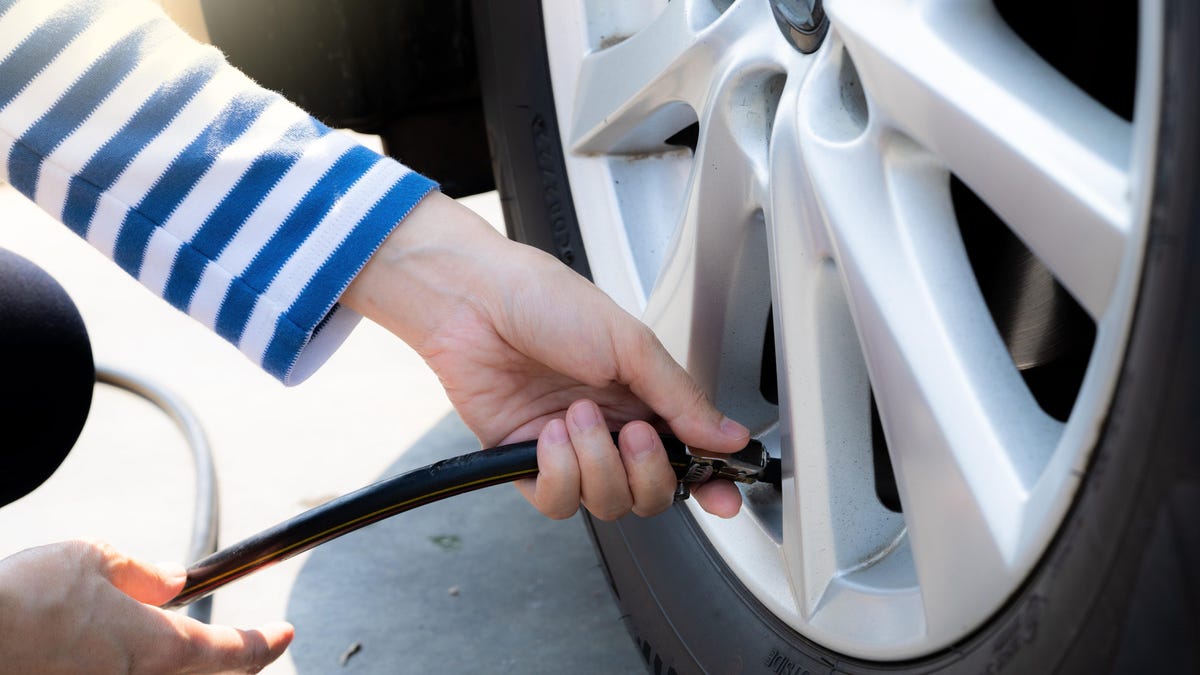[ad_1]
Getting a brand new set of tires on your automotive isn’t low cost, so it’s hardly shocking that folks wish to shield their funding and do what they’ll to increase their lifespan. Some try to do that by filling their tires with nitrogen, as an alternative of the standard compressed air discovered at gasoline stations.
Whereas nitrogen reportedly has some benefits, it additionally comes with the next price ticket than gasoline station air. So, is it value it? After one 12 months of testing, the automotive specialists at Client Stories concluded that it’s not. Right here’s what to know.
What’s the distinction between placing nitrogen versus common air in your tires?
Conventional compressed air used to fill tires is made up of 78% nitrogen and nearly 21% oxygen, with the remaining proportion consisting of water vapor, carbon dioxide, and small concentrations of noble gases, like neon and argon.
Although many gasoline stations and relaxation stops supply compressed air at no cost, others cost between $1-2 for sufficient air to prime off all 4 tires. Nitrogen, in the meantime, prices $5 or extra per tire, and usually is solely accessible at tire outlets and dealerships.
What are the advantages of filling tires with nitrogen?
It’s changing into more and more frequent for the tires on new automobiles to come back full of nitrogen—these had been have inexperienced caps on the valve stems. When dealerships do that, it’s typically accompanied by a pitch on the advantages of nitrogen in an try and persuade prospects to return for a refill. Oft-touted benefits of nitrogen embrace improved security, decreased air loss, higher gas economic system, and decreased rolling resistance, per Client Stories.
Is filling your tires with nitrogen value it?
Briefly: No. After 12 months of in depth testing, the staff at Client Stories discovered that “the advantages are extra theoretical than sensible.”
When it comes right down to it, a lot of the supposed benefits of filling your tires with nitrogen must do with sustaining correct tire stress, says Ryan Pszczolkowski, Client Stories’ tire program supervisor.
To find out the validity of these claims, the staff at Client Stories examined 31 totally different fashions of all-season tires in pairs—filling one tire with nitrogen and the opposite with common compressed air, every to 30 psi (kilos per sq. inch) at room temperature. They left the tires open air for a 12 months, then checked the inflation stress at room temperature once more.
After 12 months, the tires full of compressed air misplaced a median of three.5 psi (out of 30 psi), whereas these full of nitrogen had been down a median of two.2 psi.
The underside line
Technically, the nitrogen-filled tires did maintain onto barely extra air stress, however the distinction was so minimal that the staff at Client Stories decided that nitrogen wasn’t well worth the extra value and problem.
Plus, some specialists fear that folks might use the supposed benefits of nitrogen-filled tires as an excuse to neglect common upkeep.
“It will be significant that automotive house owners routinely verify their tire stress,” Pszczolkowski says. “Now we have considerations that automotive house owners who use nitrogen may verify their tire stress much less typically. That will be a mistake.”
[ad_2]
